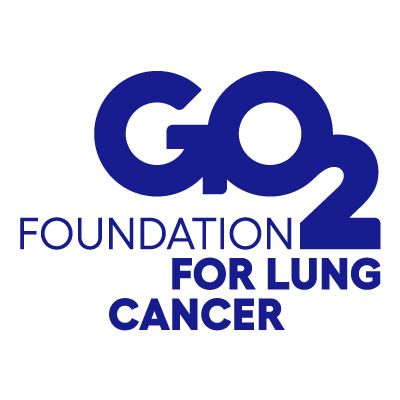Making Progress in the Fight Against Cancer

The UAB O’Neal Comprehensive Cancer Center is working in partnership with the GO2 Foundation with a $1.6 million grant they received from the Bristol-Myers Squibb Foundation to reach underserved Alabamians who are most at-risk for lung cancer. The three-year grant established the Alabama Lung Cancer Awareness Screening and Education (ALCASE) program, which aims to address the widespread racial and socioeconomic disparities in lung cancer, especially predominant in Alabama and in the Deep South.
Lung cancer is the leading cause of cancer deaths in both men and women across the United States, killing more people than colon, breast and prostate cancers combined. In Alabama, lung cancer is the No. 1 cause of cancer deaths and is No. 3 in the number of new cases diagnosed each year. While lung cancer screening holds the greatest promise for finding the disease early, only 4 percent of individuals nationally are screened for lung cancer each year.
“There is a great lack of awareness about the potential benefits of screenings and, for many, a reluctance to engage in the screening process,” says Claudia Hardy, MPA, director of the Office of Community Outreach and Engagement at the O’Neal Cancer Center. “Lung cancer screening hasn’t gotten the attention that a mammogram or colposcopy has gotten.
“The messages that many people hear are ‘stop smoking’ or ‘tobacco is bad.’ While this is true, we are making a conscious attempt to make high-risk individuals aware that screening is available,” says Hardy. The ALCASE program combines the GO2 Foundation’s expertise in lung cancer screening and expands the Cancer Center’s successful Deep South Network Community Health Advisor (CHA) model to decrease lung cancer disparities in six Black Belt counties –Sumter, Green, Hale, Marengo, Choctaw and Dallas – as well as in Jefferson County. Through education and awareness, the purpose of the program is to encourage participation and increase screenings by providing community-based support to local health care facilities.
After recruiting and screening 530 individuals for ALCASE, 202 people enrolled, and 187 successfullycompleted the eight-week CHA training program. Each of the trained CHAs is responsible for identifying 1-2 individuals who are at a high risk for lung cancer. Ultimately, the ALCASE program’s goal is to screen 250 men and women in the seven-county region from ages 55-75 who are current or former smokers.
“A lot of behind-the-scenes work has taken place to get the screening centers on board, such as providing financial assistance for those who don’t have insurance and establishing a gas card program to offset transportation barriers,” says Hardy. As the second year of funding begins and the CHA recruitment phase has concluded, ALCASE’s primary focus is getting the word out about lung cancer screening. The Cancer Center plans to coordinate at least 10 community awareness events in the coming year to increase screening awareness.
Share a Memory of the O'Neal Cancer Center
If you’re a physician, nurse, researcher, trainee, staff member, administrator or volunteer at the UAB O’Neal Comprehensive Cancer Center, our communications team wants to know what you think is most interesting, pivotal, or noteworthy about the O’Neal Cancer Center’s last 50 years. Submit a memory in honor of the Cancer Center’s 50th anniversary, and we may share it in our social media channels!




